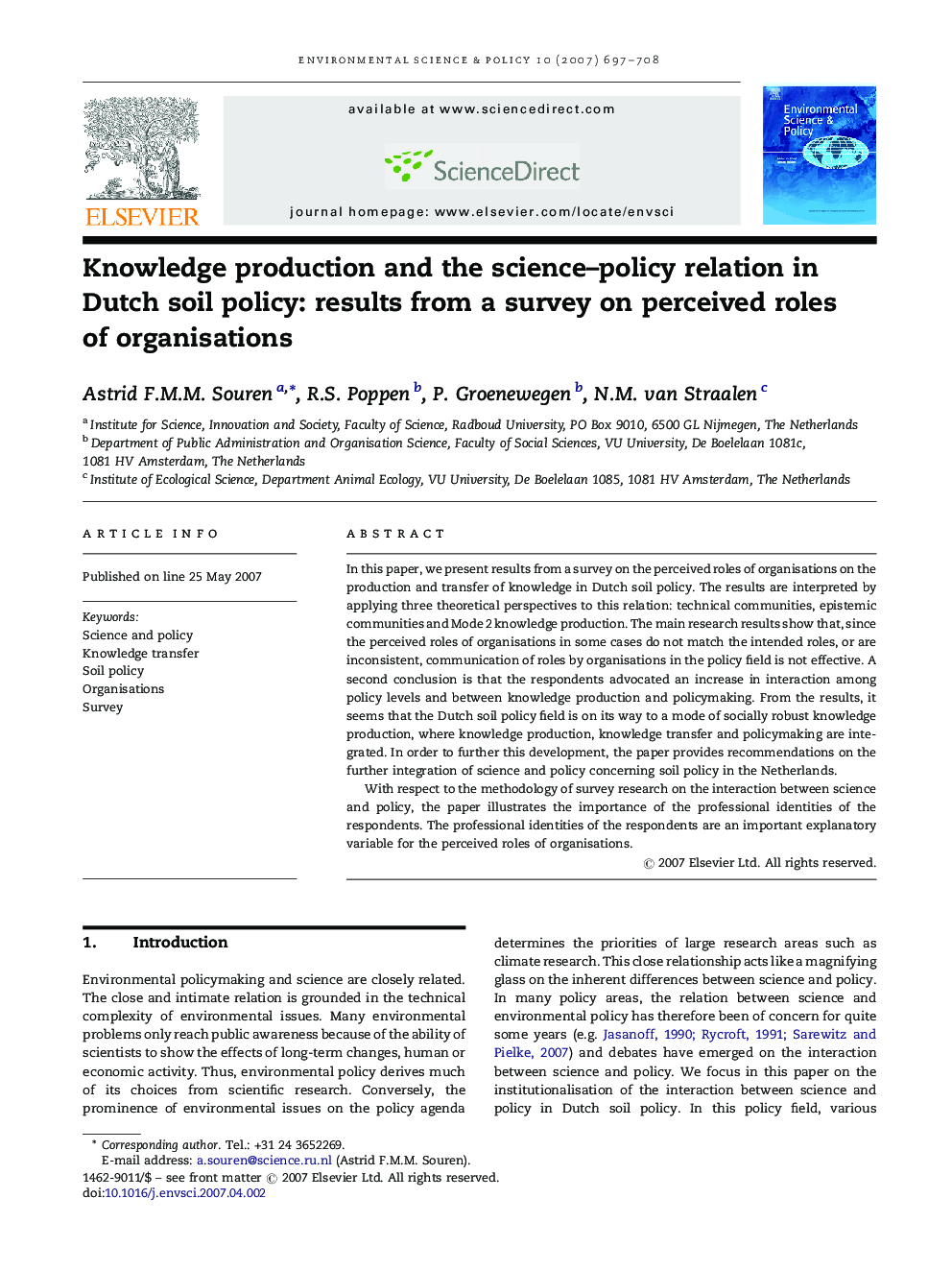| کد مقاله | کد نشریه | سال انتشار | مقاله انگلیسی | نسخه تمام متن |
|---|---|---|---|---|
| 1054245 | 1485090 | 2007 | 12 صفحه PDF | دانلود رایگان |

In this paper, we present results from a survey on the perceived roles of organisations on the production and transfer of knowledge in Dutch soil policy. The results are interpreted by applying three theoretical perspectives to this relation: technical communities, epistemic communities and Mode 2 knowledge production. The main research results show that, since the perceived roles of organisations in some cases do not match the intended roles, or are inconsistent, communication of roles by organisations in the policy field is not effective. A second conclusion is that the respondents advocated an increase in interaction among policy levels and between knowledge production and policymaking. From the results, it seems that the Dutch soil policy field is on its way to a mode of socially robust knowledge production, where knowledge production, knowledge transfer and policymaking are integrated. In order to further this development, the paper provides recommendations on the further integration of science and policy concerning soil policy in the Netherlands.With respect to the methodology of survey research on the interaction between science and policy, the paper illustrates the importance of the professional identities of the respondents. The professional identities of the respondents are an important explanatory variable for the perceived roles of organisations.
Journal: Environmental Science & Policy - Volume 10, Issues 7–8, November–December 2007, Pages 697–708